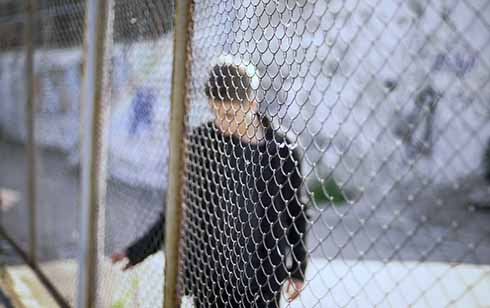 Last month 31 member states of the United Nations called on Australia to raise the age of criminal responsibility to 14. Their voices joined those of child psychologists, mental health experts, children’s agencies to deal with children who have committed offences through special children’s programs and not through the justice system.
Last month 31 member states of the United Nations called on Australia to raise the age of criminal responsibility to 14. Their voices joined those of child psychologists, mental health experts, children’s agencies to deal with children who have committed offences through special children’s programs and not through the justice system.
This response suggests that Australian practice is considered crude and primitive compared to those of comparable societies. In response to the call by the United Nations representatives an Australian government official admitted that of children aged from 10 to 13 who are held in detention, 78% are Indigenous, while forming only 6% of that Australian age group. Such statistics invite us to ask what are our national values.
HUMAN DIGNITY
For Catholics and other people concerned for human rights the United Nations rebuke will appear justified. It is based on respect for the human dignity of the children affected. Respect means attending to the situation and the needs of persons, and not treating them as interchangeable things whose welfare can be subordinated to financial and organisational considerations. Their treatment must respect the distinctive needs, qualities and situations of children. One size does not fit all.
Children brought into contact with the justice system come mostly from disadvantaged backgrounds, suffering variously from impoverishment, addiction, lack of education, domestic violence and poor mental or physical health. Punitive treatment exacerbates the effects of disadvantage.
The goal of any response to children’s anti-social behaviour should be to hold them responsible, keep the community safe and to provide the support, mentoring and encouragement the need if they are to become mature adults. This requires trained and mature supportive staff. If, for the protection of the community, some young people need to be detained, the places to which they are sent should be designed for rehabilitation and not punishment.
All the current evidence shows that to treat children through the justice system with its focus on crime and punishment is ineffective. They are more likely than children responded to in other ways to reoffend and to graduate to adult prisons.
The reason why treating children punitively fails them and society is that it does not take account of their development into adult human beings. Our brain does not develop fully until our 20s. Its immature development reflects itself in impulsive decision making, lack of attention to the consequences of actions, and little ability to take responsibility. These capacities grow through supportive relationships. They do not grow in the midst of disadvantage, nor in detention centres where relationships are often conflictual. Punitive practices like hooding and solitary confinement cause trauma that can develop into lasting mental illness.
INEFFECTUAL AND DISCRIMINATORY
The fact that such ineffectual practices and such discriminatory recourse to detention continue in Australia suggests that other people’s children do not matter enough to us for governments to invest in better policies. Our practice contrasts with that of other nations which focus more on prevention of crime through the rehabilitation of young offenders rather than punishment.
Such a policy can seem daunting because of its cost. But it is better seen as justice reinvestment. It sets the cost of alternative programs that have proved to be more effective both in Australia and in other nations, against the costs to the community by crime and of imprisonment if people continue to offend. The preventative programs are funded by the money saved.
Raising the age of criminal responsibility matters because children matter.